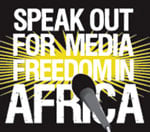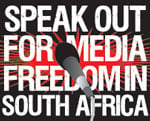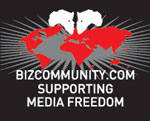
Top stories



ESG & Sustainability#BudgetSpeech2026: SRD grant unchanged, other Sassa social grants see hike
1 hour



More news





ESG & Sustainability
South Africa’s carbon tax should stay: climate scientists explain why
















The laws that impact upon the media include common law and statutory and criminal and civil, Milo said, adding that, despite these laws regulating the conduct of all persons, the media often clashes with them due to its activities. Some of these laws whose impact is particularly felt by the media include defamation, privacy, contempt of court and crimen injuria.
In addition, he said, various statutory offences include areas of national security, defence, intelligence, prosecution of crime, correctional services, and reportage of identities of minors and others in criminal cases, as well as open justice and access to information.
Consequences of not complying with law
These laws, he said, have the effect of regulating journalistic conduct and seek to ensure that power which media wields is exercised responsibly. He warned that consequences of not complying with law can lead to interdict from publishing, general and special damages, being forced to publish an apology or retraction, and legal costs (loser pays winner), among others.
Milo, who represents major corporations, newspapers, broadcasters and entertainment companies, said, however, for its efficacy and legitimacy, media law needs to be consonant with constitutional calibration of rights so that right to free speech is exercised responsibly (eg, reputation and dignity versus freedom of expression), and reflect good journalistic practice.
"We now have reasonableness as a concept that can help balance reputation and free speech," he pointed out.
Milo cited the following indicators of reasonableness:
"Because of these clashes, your code of conduct has become very important," Milo said, referring to the South African Press Code, which is published by the Press Council of South Africa and reinforced by the office of the ombudsman.
"Judges set normative standards, but increasingly media codes and good practice give content. This means press codes should be carefully drafted to ensure that there is the necessary calibration of rights (privacy versus public interest) to avoid pitfalls such as a statutory media tribunal.
"This means reasoned decisions of adjudicatory bodies become more important and will be of persuasive value for courts (eg, how the ombudsman treats an analogous claim for invasion of privacy).
"Courts will be looking to journalists"
"Courts will be looking to journalists to prove the reasonableness and accountability of the media," he said, adding that decisions of the Press Council can be subject to judicial review.
As codes become increasingly vital, Milo reiterated that legislation such as the Electronic Communications Act, Films and Publications Act and the soon-to-enacted Protection of Personal Information Bill will be used in defamation cases to pin the reasonableness standard down.
"This is a unique opportunity for the SA Press Council which is currently reviewing its code. Please populate it with rules that calibrate the relevant constitutional rights which give useful and practical guidance to journalists," he concluded.

Last updated at 11.04 on 16 March 2011.
